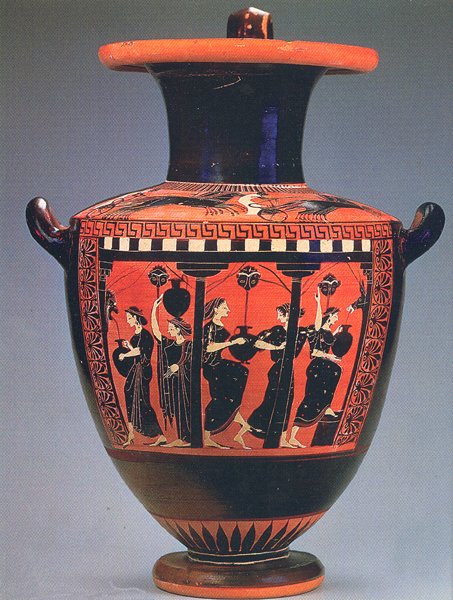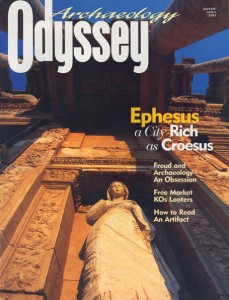Ancient Life: The Life of the Fairer Sex
Along with a defense of freedom

“For the woman it is more honorable to remain indoors than to be outside; for the man it is more disgraceful to remain indoors than to attend to business outside.” So declares a new husband in Oeconomicus, a series of dialogues on managing estates by the Athenian writer Xenophon (c. 428–354 B.C.).
The ancient Greeks thought it unseemly for women to venture into public except for religious festivals and funerals—and for the daily duty of collecting water, as shown in this sixth-century B.C. hydria (a vessel used to store water). In wealthier families, the shameful task of fetching water fell to slaves. For example, a female chorus complains about having to collect water in Aristophanes’s play Lysistrata—a political comedy in which the women of the Greek city-states deny their husbands intimacy in order to force them to make peace. The chorus intones: “Filling up my water jug has been no easy matter … Pushed as I was, jostled by slavewomen and sluts marked with a brand [slave prostitutes].”
Already a library member? Log in here.
Institution user? Log in with your IP address.

